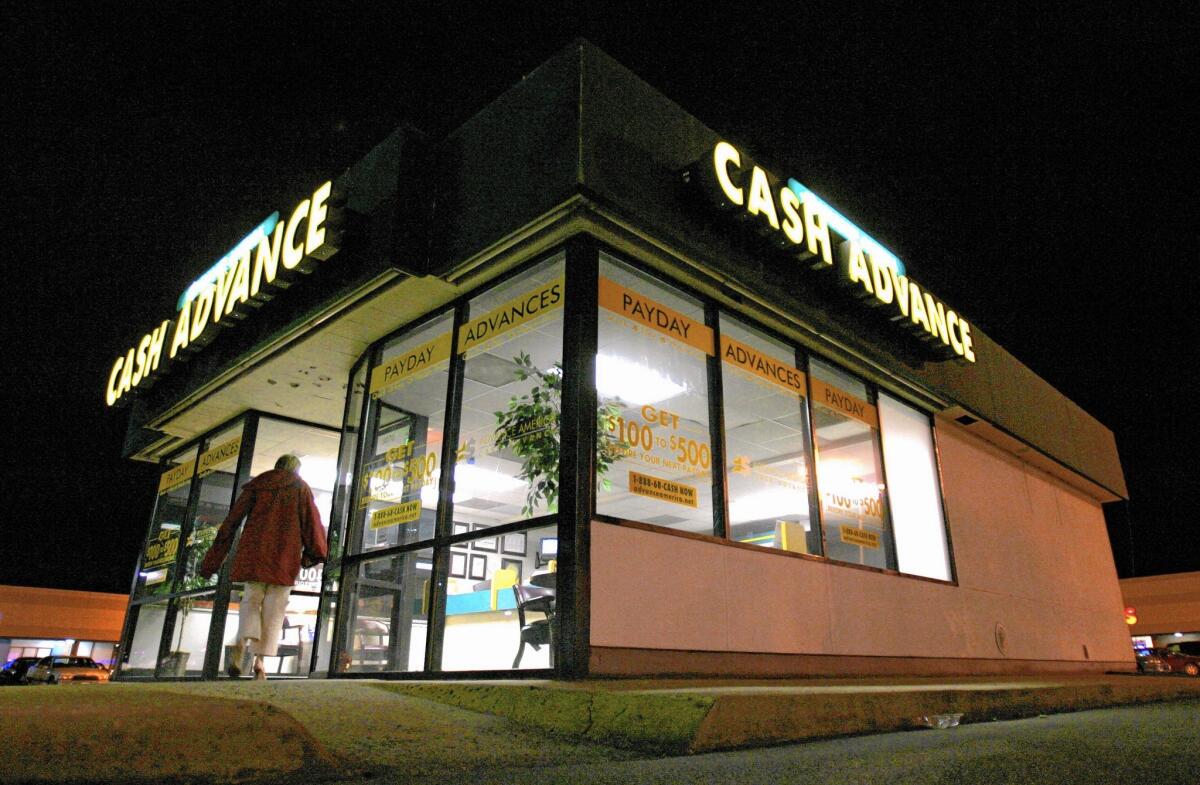Consumers say debt collectors defy requests to stop calling

- Share via
Three out of four consumers said debt collectors ignored their requests to stop calling, according to a survey released by the Consumer Financial Protection Bureau, which detailed “troubling” practices in the multibillion-dollar industry.
Consumers told the CFPB that they often felt threatened by debt collectors, were contacted late at night or early in the morning and were pursued by collectors using incorrect information — practices are forbidden by the Fair Debt Collection Practices Act.
Debt-collection efforts affect more than 70 million Americans annually and are one of the leading sources of consumer complaints to the CFPB.
The survey looked at a sample of consumers drawn from credit-reporting records about their experiences with debt collectors.
More than 1 in 4 consumers contacted by a creditor or debt collector felt threatened, according to the survey, and 3 in 4 consumers who asked collectors to cease communication said the request wasn’t honored. More than a third said debt collectors called between 9 p.m. and 8 a.m.
In addition, more than half reported a mistake in the debt, such as an incorrect amount, a debt not owed or a debt owed by a family member.
Nearly 40% of consumers reported being contacted four or more times a week by a debt collector. And 17% said they got eight or more calls in a week.
Consumers are protected from these predatory and unfair practices by the Fair Debt Collection Practices Act. Among its protections:
♦ Communication: Consumers can tell debt collectors how and when to communicate — including telling them to stop contacting them altogether.
♦ Harassment and abuse: Debt collectors cannot use abusive language, threaten violence or use repeated calls to harass.
♦ Truthfulness: Debt collectors must be honest about the amount of the debt, whether it’s past the statute of limitations for lawsuits and cannot misrepresent themselves.
♦ Debt validation: Consumers must receive a validation letter within five days of first contact with information about the amount owed, who’s seeking payment and their rights on disputing the debt.
The catch: It’s up to consumers to exercise these rights on their own.
“My first tip for consumers is to really slow down and evaluate the person who is calling them about the debt,” said April Kuehnhoff, a staff attorney at the National Consumer Law Center. “Ask for more information to make sure they recognize the debt, that they believe it’s theirs and that they know who this party is who’s contacting them.”
If a debt collector calls to pressure you to make a payment and makes you feel threatened or unsafe, simply hang up. Don’t feel rushed to make a payment, Kuehnhoff said.
Consumers can file complaints directly with the CFPB on its website if they believe that their consumer rights have been violated.
Sean Pyles is a staff writer at NerdWallet, a personal finance website.
More to Read
Inside the business of entertainment
The Wide Shot brings you news, analysis and insights on everything from streaming wars to production — and what it all means for the future.
You may occasionally receive promotional content from the Los Angeles Times.










